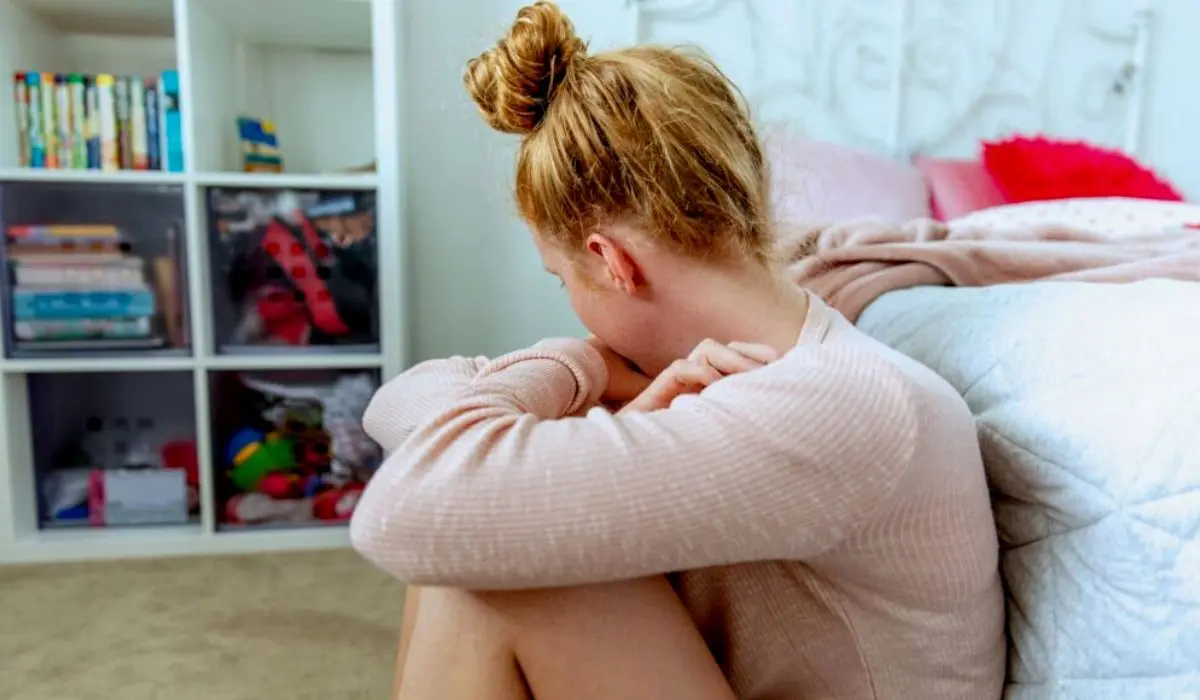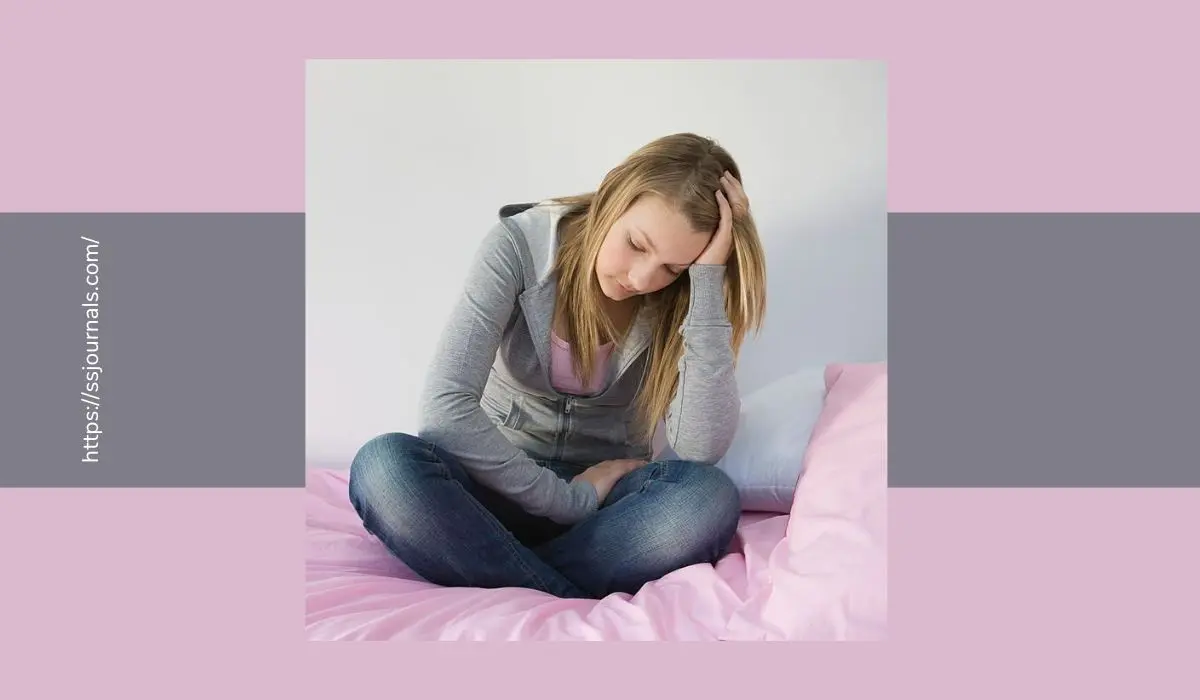During the teenage years, hormonal imbalance can wreak havoc on a girl’s body and mind. It’s like a rollercoaster ride that leaves them wondering what hit them. You see, hormones play a crucial role in the delicate dance of adolescence, where physical and emotional changes are the norm.
From raging teen hormones to imbalances in thyroid hormones, it’s no wonder these young ladies feel like they’re on an emotional rollercoaster.
But fear not! Effective treatment is within reach once we understand the causes and symptoms of hormonal imbalances.
By addressing these imbalances head-on, we can help teenage girls navigate this transformative phase of their lives with greater ease. So buckle up and get ready for a crash course on how to treat hormone imbalance in teenage girls.
Puberty brings about an explosion of sex hormones that can send everything out of whack. We’ll explore how these imbalances affect teens’ bodies and minds while uncovering practical solutions for restoring harmony.
Let’s embark on this journey together and empower our teen girls to conquer hormone imbalances like superheroes!
Causes And Symptoms Of Hormonal Imbalance In Teenage Girls
Common symptoms of hormonal imbalance in teenage girls include irregular periods, acne breakouts, mood swings, and weight gain. These persistent symptoms can be distressing for young girls as they navigate through their teenage years.

It’s important to understand the common causes behind these imbalances to determine the appropriate treatment approach.
- Common Causes:
- Puberty: The onset of puberty triggers significant hormonal changes in a girl’s body, which can lead to imbalances.
- Stress: Emotional or physical stress can disrupt hormone levels and contribute to imbalances.
- Diet: Unhealthy eating habits, such as excessive sugar or processed foods, may impact hormone regulation.
- Medical conditions: Certain medical conditions like polycystic ovary syndrome (PCOS) or thyroid disorders can cause hormonal imbalances.
- Symptoms:
- Irregular periods: Hormonal fluctuations can result in irregular menstrual cycles, with periods occurring too frequently or infrequently.
- Acne: Increased sebum production during hormonal shifts often leads to acne breakouts on the face, chest, and back.
- Mood swings: Hormonal imbalances can affect neurotransmitters in the brain, leading to mood swings and emotional instability.
- Weight gain: Hormones play a role in metabolism and appetite control; thus, imbalances may contribute to weight gain.
Identifying the specific cause of hormonal imbalance is crucial for effective treatment. In some cases, lifestyle changes like adopting a balanced diet and managing stress levels may help restore balance.
For more severe cases or underlying medical conditions like PCOS, medical intervention may be necessary.
If you notice persistent symptoms indicative of a hormonal imbalance in your teenage daughter, consult a healthcare professional who specializes in adolescent health.
They will evaluate her individual situation and recommend appropriate steps for managing the imbalance effectively.
Understanding The Impact Of Hormonal Imbalance On Teenage Girls
Hormonal imbalance can significantly affect the well-being of teenage girls, leading to various physical and emotional challenges. It is crucial to recognize these impacts in order to provide the necessary support and intervention.
- Self-esteem and overall well-being: Hormonal changes can cause mood swings, which may negatively impact a teenage girl’s self-esteem. These fluctuations can also contribute to health issues such as acne, weight gain, and irregular menstrual cycles. Recognizing these effects is essential for addressing them effectively.
- Mental health challenges: Hormonal imbalance can be associated with mental health issues such as anxiety and depression in teenage girls. These conditions can manifest as increased irritability, sadness, or sudden changes in behavior. Providing appropriate mental health support is vital for their overall well-being.
- Difficulty concentrating at school: Hormonal imbalances may lead to difficulties in focusing and concentrating on academic tasks. Teenage girls experiencing hormonal changes might find it challenging to stay engaged in classroom activities or complete assignments on time. Offering strategies and accommodations within the educational setting can help mitigate these challenges.
- Peer pressure and social dynamics: Adolescence is a period marked by intense peer pressure and social dynamics. Hormonal imbalances can exacerbate these pressures by amplifying emotions, making it harder for teenage girls to navigate relationships with their peers. Creating supportive environments that foster healthy friendships and communication skills is crucial.
- Future fertility concerns: Addressing hormonal imbalances during adolescence becomes particularly important when considering future fertility. Ensuring proper hormone regulation early on can help prevent potential complications or difficulties with reproductive health later in life.
Treating Hormonal Imbalance In Teenage Girls
Treatment options for hormonal imbalances in teenage girls are diverse and can be tailored to individual needs.
- Hormonal therapy prescribed by a healthcare professional is a common approach to address imbalances.
- Lifestyle changes, including regular exercise and a balanced diet, play a crucial role in regulating hormones naturally.
- Alternative therapies like acupuncture or herbal supplements may be considered complementary treatments.
Hormonal imbalance in teenage girls can lead to various physical and emotional challenges. Fortunately, there are several treatment options available that can help restore balance and improve overall well-being.
◼ Hormonal Therapy
- Healthcare professionals often prescribe hormonal therapy as an effective means of treating imbalances.
- This may involve the use of hormonal birth control or hormone replacement therapy (HRT).
- These treatments work by introducing certain hormones into the body to regulate levels and alleviate symptoms.
◼ Lifestyle Changes
- Encouraging teenage girls to adopt healthy lifestyle habits is essential for hormone regulation.
- Regular exercise helps reduce stress, increase endorphin levels, and promote hormonal balance.
- A balanced diet rich in nutrients supports optimal hormone production and function.
◼ Alternative Therapies
- In some cases, alternative therapies can complement traditional treatment approaches.
- Acupuncture has been shown to stimulate specific points in the body, potentially aiding hormone regulation.
- Herbal supplements such as chaste berries or black cohosh might offer natural support for hormonal balance.
It’s important to note that each case of hormonal imbalance is unique, so it’s crucial for teenagers experiencing these issues to consult with a healthcare professional who can guide them toward the most suitable treatment options.
Natural Remedies And Lifestyle Changes for Balancing Hormones In Teenage Girls
Eating a nutritious diet rich in fruits, vegetables, whole grains, and lean proteins is essential for promoting hormone balance. Incorporate these foods into your daily meals to support hormonal regulation:
- Fresh fruits like berries, oranges, and bananas
- Leafy green vegetables such as spinach, kale, and broccoli
- Whole grains like quinoa, brown rice, and oats
- Lean proteins like chicken breast, tofu, and fish
Regular exercise plays a crucial role in reducing stress levels and supporting hormonal balance. Engage in activities that you enjoy to stay active and promote overall well-being. Consider the following options:
- Brisk walking or jogging outdoors
- Dancing or participating in group fitness classes
- Yoga or Pilates for relaxation and flexibility
Adequate sleep is vital for hormone production and overall well-being. Establishing healthy sleep habits can help regulate hormones effectively. Here are some tips for better sleep:
- Stick to a consistent sleep schedule by going to bed and waking up at the same time each day.
- Create a relaxing bedtime routine that includes activities such as reading or taking a warm bath.
- Ensure your sleeping environment is comfortable, quiet, and dark.
Incorporating natural remedies into your routine can also assist in balancing hormones naturally:
- Herbal teas like chamomile or peppermint can have calming effects on the body.
- Essential oils such as lavender or clary sage may help reduce stress levels when used aromatically.
- Supplements like omega-3 fatty acids or vitamin D can support hormonal health.
Read More:- Normal Blood Sugar Levels For Adults – Tips To Maintain Normal Level
Conclusion
In conclusion, treating hormonal imbalances in teenage girls requires a comprehensive approach that addresses both the underlying causes and the symptoms experienced.
Understanding the impact of hormonal imbalance on teenage girls is crucial for finding effective solutions.
Various treatment options are available, including medication, therapy, and lifestyle changes. It is important to consult with a healthcare professional to determine the most suitable course of action for each individual. Natural remedies and lifestyle changes can also play a significant role in balancing hormones in teenage girls.
It’s essential to prioritize self-care and make positive changes in daily habits. This may include maintaining a healthy diet, engaging in regular physical activity, practicing stress management techniques such as meditation or yoga, and getting enough sleep.

